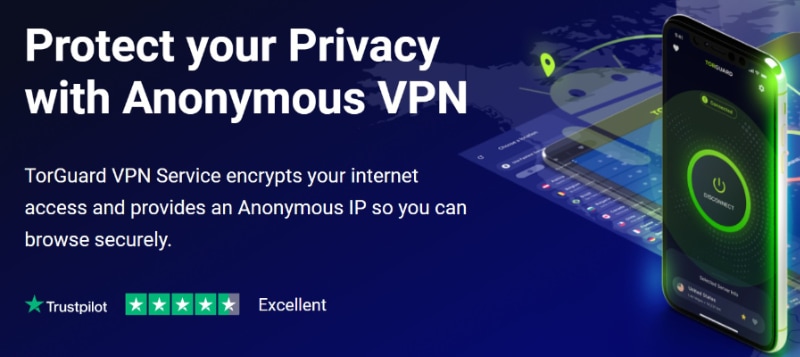TorGuard Affiliate Betrayal: A $200,000 Partnership's Fall

This isn't a review of a VPN. It's a cautionary tale about what happens when a company you trust decides to change the rules overnight.
As one of TorGuard's formerly successful affiliate partners, I generated over $200,000 in sales for them over the course of our collaboration. I believed in the product, and my audience responded.
In return for that loyalty and success, I was met with a wall of silence, baseless accusations, and a system that seemed designed to phase out its partners without cause or compensation.
This is the story of how our profitable partnership with TorGuard VPN devolved into a textbook example of broken trust.
The First Signs of Trouble: From Valued Partner to Ignored Inconvenience
For a long time, the relationship was seamless and professional. Then, the cracks began to show.
It started subtly, with affiliate support tickets going unanswered for months at a time. Then came the late payments, a jarring shift from the punctuality we had come to expect.
These weren't just administrative hiccups; they were the first red flags of a systemic breakdown within the TorGuard affiliate program.
The situation escalated dramatically when our recurring commissions, which were the foundation of our affiliate earnings, stopped without warning. The lifeblood of the partnership had been cut off.
Baffling Accusations and Shifting Realities
When we sought an explanation for the halted payments, we were plunged into a vortex of contradictory and nonsensical claims. TorGuard's first explanation was that our account was flagged for “inactivity” since April.
This was a bizarre assertion, given that our platform was still consistently referring customers to their service.
Just twelve minutes after that email, a second, more damaging response arrived. This time, we were accused of selling VPN accounts through unauthorized channels.
This allegation was not only completely unfounded but represented a serious breach of trust. We had built our reputation on ethical practices, and to be accused of such a violation was as shocking as it was baseless.
These conflicting justifications painted a clear picture: TorGuard either had no idea what was happening within its own affiliate program, or it was actively manufacturing reasons to withhold payments. The rules of our partnership were being rewritten in real-time, and we were completely in the dark.
A Pattern of Abuse: We Weren't the Only Ones
As our situation deteriorated, we discovered our experience was not an isolated incident but part of a wider, disturbing pattern. Other TorGuard affiliates were facing their own baffling and punitive challenges:
- One successful affiliate suddenly had their commission rate slashed from a healthy 30% to a paltry 5%, with the new condition that they must generate at least 10 sales per month to maintain even that reduced rate.
- Another partner saw their commission drop to 10%, but their sales quota was set at 5 per month.
The arbitrary and inconsistent nature of these new “rules” was alarming. There was no uniform policy and no official announcement.
Instead, there was only a series of punitive, uncommunicated changes that seemed designed to squeeze affiliates out of their rightfully earned income. We later confirmed that many affiliates, caught in this web of confusion, were ultimately never paid the money they were owed.
The Final Accusation: A Defamatory and Unprovable Claim
The conflict reached its climax when TorGuard escalated its accusations to a new level. They claimed, without any verifiable evidence, that our affiliate account was being used to facilitate the unauthorized reselling of their service via an Iranian Telegram channel.
We unequivocally and vehemently deny this. Our business has always operated on principles of transparency and ethical conduct.
TorGuard used this grave accusation to suspend our account permanently, citing their obligation to follow export control laws. Conveniently, they also claimed it was impossible for them to verify our innocence, effectively making them judge, jury, and executioner.
We were left with a suspended account, a damaged reputation, and no avenue for appeal.
The irony was not lost on us. TorGuard's own CEO, Ben Van Pelt, had previously stated in an interview with TorrentFreak: “It is very frustrating to be falsely accused of something when there is a complete lack of factual evidence.” Yet, this was precisely the situation his company had subjected us to.
The Unraveling: Silence, a Final Payout, and a Dead End
In the aftermath, our attempts to communicate and seek a fair resolution were met with a wall of silence. Our support tickets were merged and ignored. The dialogue was over.
Eventually, on July 27, 2023, TorGuard processed a final payout for our remaining balance. This was not a gesture of goodwill; it was a transaction designed to sever ties and close the book on a partner who had become an inconvenience.
It offered no apology, no retraction of their baseless claims, and no justice for the blatant breach of trust.
If TorGuard had simply decided to end its affiliate program and communicated that honestly, we would have understood. Business strategies change.
But instead, they chose a path of deceit, fabricating justifications to withhold payments from partners who had built their business, including one who had generated over $200,000 in revenue for them.
This experience stands as a stark and permanent reminder that in the world of affiliate marketing, success is no shield against bad faith. We are grateful to industry figures like Ernesto, founder of TorrentFreak, for his guidance during that difficult period.
Let our story be a warning: choose your partners wisely, demand transparency, and be prepared to walk away when trust is broken. Because once it's gone, it's gone for good.


